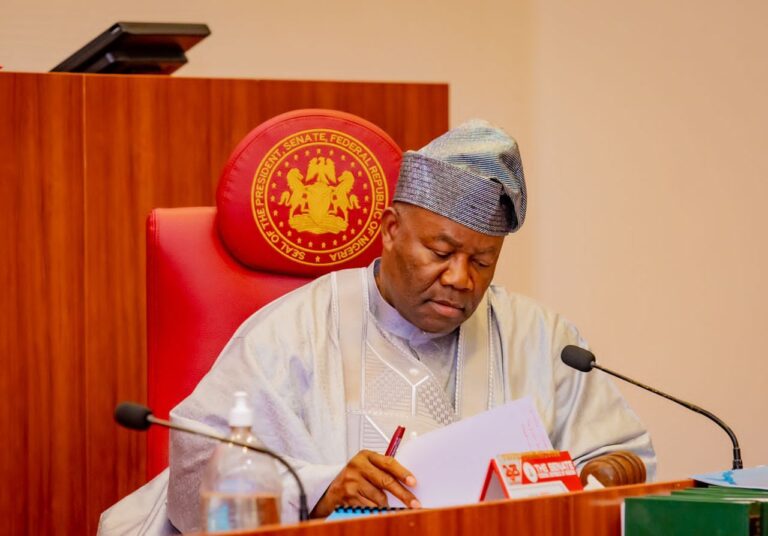As President Bola Tinubu prepares to present the 2025 budget to the National Assembly this week, the Senate has approved the 2025–2027 Medium Term Expenditure Framework (MTEF) and Fiscal Strategy Paper. The approval came on Tuesday following the adoption of a report from the Senate’s joint Committees on Finance, National Planning, and Economic Affairs, led by Senator Sani Musa (APC, Niger East).
In addition to the approval, the Senate has mandated its committees on Finance, Petroleum (Upstream), Petroleum (Downstream), and Gas to investigate allegations by the Revenue Mobilisation, Allocation, and Fiscal Responsibility Commission, claiming that the Nigerian National Petroleum Company Limited (NNPCL) withheld N8.48tn in petrol subsidy funds. The probe will also address the Nigeria Extractive Industries Transparency Initiative (NEITI) report, which asserts that NNPCL failed to remit $2bn (N3.6tn) in taxes to the Federal Government.
The Senate further directed its committees to verify the total amount of unremitted revenue (under-recovery) from the sale of Premium Motor Spirit (PMS) by NNPCL between 2020 and 2023. It also instructed a thorough investigation into NNPCL’s agreements with the Nigerian Liquefied Natural Gas (NLNG) and Immigration Services, aiming to reconcile remittances to the Federation Account.
In the three-year projections, the Senate set the exchange rate at N1,400/$ for 2025, 2026, and 2027, and oil benchmark prices at $75, $76.2, and $75.3 per barrel, respectively. Domestic crude oil production is expected to rise from 1.78 million barrels per day (bpd) in 2024 to 2.06 million bpd in 2025, 2.10 million bpd in 2026, and 2.35 million bpd in 2027.
Additionally, the Senate projects GDP growth rates of 4.6%, 4.4%, and 5.5% for 2025, 2026, and 2027, and inflation rates of 15.75%, 14.21%, and 10.04% for the same periods. However, the Senate has called for a reduction in petrol prices with the anticipated start of production at the Port Harcourt refinery.
Regarding the 2025 Federal Government budget, the Senate noted proposed spending of N47.9 trillion, with N34.82 trillion retained. New borrowings are set at N9.22 trillion, comprising both domestic and foreign debt. Capital expenditure is projected at N16.48 trillion, with statutory transfers at N4.26 trillion and sinking funds at N430.27 billion.
During the debate, Senate Appropriations Committee Chairman, Senator Solomon Adeola (APC Ogun West), highlighted the role of the Compressed Natural Gas (CNG) initiative in reducing foreign exchange demand, emphasizing how the initiative could lower fuel costs for Nigerians. Senator Yahaya Abdullahi (PDP Kebbi North) stressed the importance of supporting the manufacturing sector to achieve the MTEF projections.
Senate President Godswill Akpabio praised the committees for their thorough analysis of the MTEF, while Senator Jimoh Ibrahim (APC Ondo South) advocated for the introduction of a transactional tax, emphasizing that the wealthy in Nigeria need to contribute more to the economy.
Meanwhile, Senate Public Accounts Committee Chairman, Senator Aliyu Wadada (SDP, Nasarawa West), expressed concern over the Federal Inland Revenue Service’s (FIRS) collaboration with NNPCL in failing to remit Petroleum Profit Tax (PPT) for several years. He also raised questions regarding the operations of the Port Harcourt Refinery, urging caution before rushing to commend NNPCL.


